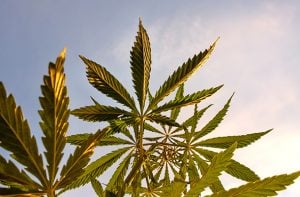
It is well known by now that hemp-derived cannabidiol (Hemp CBD) cosmetics represent the lowest level of risk for businesses. Indeed, CVS, Walgreens and Sephora are only a few of the major national retailers that now offer these products for sale.
The growing popularity of Hemp CBD cosmetics is due to several reasons. First, the FDA has not expressly prohibited the use of CBD in cosmetics like it has with conventional foods and dietary supplements and has limited its enforcement actions against companies that make egregious medical claims about their CBD products. Second, many state regulators do not seem to take issue with the sale and marketing of these products. Lastly, and maybe most importantly, the cosmetic industry has been poorly regulated for nearly a century. Unlike foods, dietary supplements, and drugs, cosmetics are not subject to premarket approval. Instead, the FDA relies on consumer complaints to monitor this self-policed industry. For example, recalls of cosmetics are voluntary actions taken by manufacturers or distributors.
Nevertheless, some federal laws and regulations apply to cosmetics marketed in interstate commerce. Both the Federal Food, Drug and Cosmetic Act (FDCA) and the Fair Packaging and Labeling Act (FPLA) mandate that cosmetics be safe and properly labeled. Note that most states have adopted and are implementing these very same laws and regulations.
Generally, the FDA will deem a cosmetic is unsafe or “adulterated” if it contains a harmful ingredient. Through its rulemaking process, the FDA has banned a small list of ingredients or substances from cosmetics. However, even ingredients or substances that are not expressly listed in the FDA regulations may be prohibited if proven to be unsafe for their intended use.
In its cannabis FAQs, specifically in answering the question, What is FDA’s position on cannabis and cannabis-derived ingredients in cosmetics?, the agency stated that:
“Certain cosmetic ingredients are prohibited or restricted by regulation, but currently that is not the case for any cannabis or cannabis-derived ingredients.”
Nevertheless, the agency went on to explain that:
“Ingredients not specifically addressed by regulation must nonetheless comply with all applicable requirements, and no ingredient — including a cannabis or cannabis-derived ingredient — can be used in a cosmetic if it causes the product to be adulterated or misbranded in any way.” (Emphasis added).
As such, manufacturers and distributors of Hemp CBD cosmetics should, at a minimum, ensure that their products are free of all substances found in the FDA regulations but also that their products are safe for human consumption before they are placed in commerce. Adopting these good business practices will not only help shield the CBD companies from falling under the scrutiny of the FDA (and that of state regulators), it will also help protect them from strict liability and other types of consumer lawsuits.
Moreover, growing concerns regarding the safety of cosmetics and demands for safer, clean labeled products, have led to the explosion of the global natural and organic beauty market, which includes Hemp CBD cosmetics. Thus, ensuring the safety and quality of Hemp CBD cosmetics does more than mitigate the risk of enforcement actions; it also provides Hemp CBD manufacturers and distributors with an opportunity to increase their revenues by giving consumers what they want and deserve.
In addition to ensuring the safety of their cosmetic products, Hemp CBD manufacturers and distributors must also check that their products are properly labeled or not “misbranded.” A cosmetic is misbranded if it is labeled in a false or misleading way, if it fails to include mandated labeling information, or if it is deceptive in any way.
According to several studies conducted in the past two years, including one recent study led by the FDA, many CBD cosmetics found on the market are mislabeled because they contain false potency claims, specifically lower concentrations of CBD than those listed on their labels. This issue is so prevalent in the industry that several companies, including Charlotte’s Web, have been hit with consumer class action lawsuits.
Another way a cosmetic may be deemed misbranded or mislabeled is if the product label explicitly or implicitly suggests that the product is intended to affect the structure or function of the body, or to diagnose, cure, mitigate, treat, or prevent disease, and thus, is a “drug” and not a cosmetic, as might be stated in the statement of identity or in the directions for use. Consequently, CBD manufacturers and distributors of Hemp CBD cosmetics should refrain from making any medical claims regarding the therapeutic value of their products. This, of course, would not render Hemp CBD cosmetics “lawful” under federal law — this won’t be possible until the FDA regulates these products; instead, such practice would further mitigate the risk of enforcement actions.
Therefore, even if Hemp CBD cosmetics represent the lowest level of risk for companies, and even if the FDA has yet to forge a legal path for the sale and marketing of these products, manufacturers and distributors should comply with all applicable safety and labeling requirements to reduce the risk of enforcement actions and to ensure the success and longevity of their business.
Nathalie practices out of Harris Bricken’s Portland office and focuses on the regulatory framework of hemp-derived CBD (“hemp CBD”) products. She is an authority on FDA enforcement, Food, Drug & Cosmetic Act and other laws and regulations surrounding hemp and hemp CBD products. She also advises domestic and international clients on the sale, distribution, marketing, labeling, importation and exportation of these products. Nathalie frequently speaks on these issues and has made national media appearances, including on NPR’s Marketplace. For two consecutive years, Nathalie has been selected as a “Rising Star” by Super Lawyers Magazine, an honor bestowed on only 2.5% of eligible Oregon attorneys. Nathalie is also a regular contributor to her firm’s Canna Law Blog.

